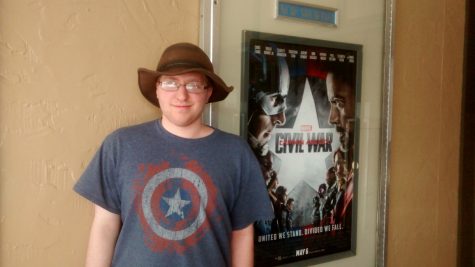Lizzy – Matthew Demchak
By Matthew Demchak
There’s a pond at the end of a backroad that I visited all the time over the summer. It was remote and isolated, which made it the perfect place to visit and clear my thoughts of the nervousness I was feeling about the upcoming school year.
I had just moved in from a larger town in New York after my dad got a new job and dragged us along with him. This I didn’t mind too much; moving was moving, after all. The only problem was that I was about to start high school in the fall. It was bad enough that I wouldn’t be spending the final four years of school with my old friends. Now I would have to somehow find new friends in a small-town community where everybody knew everybody, and cliques would already be formed, waiting to ignore and taunt the lone new kid.
At the edge of the pond was a simple wooden swing. It wasn’t really much; just a wooden board with rope tied to it and strung up on a sturdy tree branch. But that simple wooden swing changed my life.
The pond—and the swing—were not public property. They belonged to Mr. Dawes, an old, white haired man with a crippled leg and a granddaughter. Her name was Lizzy.
When they first caught me approaching the pond, I was certain that they were going to call the police on me. The look on Mr. Dawes’ face—and the gleam on the barrel of his gun—only enhanced that fear.
Lizzy, however, welcomed me with open arms, and gently lowered the gun from his grip.
She understood me. How I felt, what my troubles were, my fears for this new chapter in my life. Everything.
We hung out all that afternoon at the pond. Lizzy took off her shoes and dipped her feet in the cool, clear water.
“Come on!” she beckoned. “The water’s fine.”
Not really sure on what else to do, I followed suit.
She was right. The water was perfect. Not hot enough to be like a hot bath, and not too cold to be unbearable.
For a few minutes, we stood there, our bare feet wriggling in the soft mud of the pond. I had to leave then for dinner, before Dad got worried. I asked Lizzy if I could come back in a few days.
“Sure,” she replied. “But next time, just knock on the front door.”
I didn’t just go back in a few days. Eventually I started going over there every day in the afternoons.
Some days, Lizzy and I would race through the nearby woods, running down mossy dirt paths and darting around the sturdy oaks. She would show me different kinds of plants and flora, including the poisonous kind.
“If you ever get lost in the woods, never eat these mushrooms,” she told me. “They’ll kill you within two minutes.”
Other days, we would go fishing in the pond. There weren’t that many fish in it: just the occasional bass and maybe a pike or two. Lizzy said it was because previous owners of the pond before her grandfather had taken too many fish from the water, and therefore had disrupted the ecosystem of the pond.
“Until the fish population comes back, just put the fish back once you catch them,” she told me.
But most days, we would sit on the swing together and talk while Mr. Dawes grilled juicy red burgers for supper.
Because the swing was too small for both of us to sit side by side, she would often let me have the swing and then would plop down on my lap. This would usually cause Mr. Dawes to raise a concerned eyebrow, but she didn’t care. She was just happy that she had a companion to spend the evenings sitting on the swing and listen to the crickets chirping in the day’s last gasping rays of light.
Through these chat sessions, as we swung slightly with the cool summer’s breeze, we learned so much about each other. I learned that Lizzy was also somewhat new in town. She had come over a year ago from California to be with her grandfather. She learned that I was extremely nervous about being the new kid in school.
“I was once in your position too,” she revealed. “I know how it feels to be a stranger in a strange land.”
I asked her how she made it through the scrutiny of not being part of any social group. Of being the loner in the building, being the easy target for taunts and scorn. She thought long and hard about it, then gave me her answer.
“I just kept telling myself that their opinions didn’t matter. I just decided to be myself, no matter how other people felt about it.”
Conversations such as this warmed my heart. It felt really good to spend my summer days, basking in the sweet sun’s rays while lying in the lush green grass under the swing with someone as understanding as Lizzy.
As the days went on, however, something was changing. Worry was starting to grow behind Lizzy’s kind blue eyes. I was beginning to see less and less of Mr. Dawes. My visits tended to get shorter and shorter, and often, the clear blue skies of my early visits were transforming into slate-gray clouds of darkness.
One day, as we sat on the swing together, she turned to look me in the eyes and asked me a question.
“What do you think death’s like?”
I was stunned at such a question. For a moment, I didn’t really know how to respond. But then I saw the questioning in her eyes, and I knew that I had to give some sort of answer.
I told her that I believed that death was the next step in an everlasting journey of humanity.
“Does it hurt?”
Now getting more and more concerned with how she was acting, I hesitantly told her that, while I had clearly not experienced it myself, death probably didn’t hurt at all. Rather, it felt very calm and peaceful, and it was quicker than falling asleep.
She nodded slowly, smoothed her tangle of blonde curls back, and stood up. Without so much as another word, she left me there, swinging silently on that simple wooden swing.
When I returned the next day, she wasn’t there. Not in the house, not in the pond, and not in the woods.
Something had happened to her, I realized then and there. Something bad.
Was that talk about death the previous day a part of it? I shuddered at the thought that someone so friendly, so positive would sink so low as to take such an action.
I returned to the swing and sat down, as I had done almost every day for the past three months, lost in thought and concern. Instantly I felt something smooth and papery underneath me.
Curious, I stood up and looked down at the swing. On it was a folded piece of dandelion yellow paper with my name on it. With growing dread, I picked up the note, unfolded it, and began to read it.
Lizzy had explained everything in her tear-stained note. That the real reason that she came to be with Mr. Dawes was to take care of him in his final years. That he had developed a deadly form of cancer, and they didn’t have the money to help him. That the previous evening, after I had left, Mr. Dawes had passed away with his loving granddaughter by his side.
That, now that her grandfather was dead, that she was to return to California. She had left early this morning, with only barely enough time to put the note in a spot that I would find it: on the swing where we spent so much of our time together.
I sat down once again on the swing, stunned at the revelations that Lizzy had revealed through her note.
She was gone. She apparently hadn’t even had time to leave any contact information either, for there was no phone number nor e-mail address written on the note.
A steady rain began to fall. Not the slow, steady summer shower that kids loved to splash and play in, but a heavy, thundering storm. The kind that only the emerald green frogs that lived next to the pond, or the darkly colored fish that lived in it, would enjoy being out in.
I had to take shelter within the now bare, unpainted house. Dad had to drive up and get me to bring me home.
I never did see Lizzy again. She had no reason to come back here, after all. Her task here was as done and buried as Mr. Dawes body.
But I took heart what she said about being the new kid in school. When the school year eventually started, just ten days after Lizzy had left, I ignored the scorn, the taunts, and the insults that were thrown my way.
I didn’t spend all my time at school friendless. Within a week, I had made two new friends, who helped guide me through the rest of the year.
No one ever came to take possession of the house after Mr. Dawes death. It was so isolated and far out there that barely anyone actually knew about it.
I still sometimes went back there, when I’m feeling down in the dumps, to think things out. I still sat at the edge of the pond and let the cool clear waves gently lap against my bare feet. I still listened to the chirping crickets, hidden from my sight by the increasingly growing grass.
But I never sat in that swing again. Instead, I just watched and watched as the wind gently rocked it back and forth, back and forth, back and forth.
I watched as the swing, like my heart, remained empty of anything and everyone, including my closest friend, the one without whom I never would’ve survived high school.
My closest friend, Lizzy.





